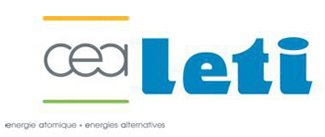Home > Press > Global School for Advanced Studies Invites Student Researchers To Session on “Graphene Fundamentals and Applications
 |
Abstract:
Teams at June 20-26 Session in Grenoble Will Design Projects and Compete for Fellowships to Implement Research at CEA
Global School for Advanced Studies Invites Student Researchers To Session on “Graphene Fundamentals and Applications
Grenoble, France | Posted on February 8th, 2011The Global School for Advanced Studies (GSAS) invites post-doctorate fellows and other senior student researchers from around the world to apply for the June 20-26 session on "Graphene Fundamentals and Applications" in Grenoble, France.
Selected students, who will receive full travel and lodging support, will compete for fellowships to implement graphene-related research at CEA in Grenoble beginning in January 2012.
Hosted by the GIANT Innovation Campus in Grenoble, this program will create several research teams and challenge them to design a project based on graphene that will leverage their complementary strengths. Each team will have members from around the world and a balance of capabilities, including materials synthesis, characterization, device design and fabrication, theory and measurement.
Teams participating in the Graphene Fundamentals and Applications Session will receive project mentoring from leading global experts. These include Harry Kroto, a Nobel Prize winning professor in the Department of Chemistry and Biochemistry at Florida State University; Sumio Iijima, research fellow at NEC and a professor of materials science at Meijo University in Nagoya; and Daniel Neumaier, of AMO Research Foundry, and coordinator of the EU's Graphene-based Nanoelectronic Devices (GRAND), 7th Framework Programme.
Founded in 2006, GSAS is designed to foster innovation in critical global challenge areas such as energy, environment, and health, while training the next generation of young researchers with global leadership capabilities.
The program, which rotates its sessions among campuses and facilities in different countries, groups selected students into interdisciplinary teams that attend lectures, receive expert mentoring and are challenged to develop detailed collaborative research plans in one of the challenge areas. The team whose research plan is chosen receives research fellowships to carry out its projects at GSAS member institutions.
The Graphene Fundamentals and Applications Session is organized by the National Science Fundation (NSF), Northwestern University and CEA-Grenoble (in the frame of GIANT).
Senior graduate students and postdocs from all related disciplines are invited to apply. Visit www.gsasprogram.org for more information.
####
For more information, please click here
Contacts:
CEA-Leti
Hélène Ulmer
Agency
Amélie Ravier
+33 1 58 18 59 30
Copyright © CEA-Leti
If you have a comment, please Contact us.Issuers of news releases, not 7th Wave, Inc. or Nanotechnology Now, are solely responsible for the accuracy of the content.
| Related News Press |
News and information
![]() Simulating magnetization in a Heisenberg quantum spin chain April 5th, 2024
Simulating magnetization in a Heisenberg quantum spin chain April 5th, 2024
![]() NRL charters Navy’s quantum inertial navigation path to reduce drift April 5th, 2024
NRL charters Navy’s quantum inertial navigation path to reduce drift April 5th, 2024
![]() Discovery points path to flash-like memory for storing qubits: Rice find could hasten development of nonvolatile quantum memory April 5th, 2024
Discovery points path to flash-like memory for storing qubits: Rice find could hasten development of nonvolatile quantum memory April 5th, 2024
Govt.-Legislation/Regulation/Funding/Policy
![]() NRL charters Navy’s quantum inertial navigation path to reduce drift April 5th, 2024
NRL charters Navy’s quantum inertial navigation path to reduce drift April 5th, 2024
![]() Discovery points path to flash-like memory for storing qubits: Rice find could hasten development of nonvolatile quantum memory April 5th, 2024
Discovery points path to flash-like memory for storing qubits: Rice find could hasten development of nonvolatile quantum memory April 5th, 2024
![]() Chemical reactions can scramble quantum information as well as black holes April 5th, 2024
Chemical reactions can scramble quantum information as well as black holes April 5th, 2024
Academic/Education
![]() Rice University launches Rice Synthetic Biology Institute to improve lives January 12th, 2024
Rice University launches Rice Synthetic Biology Institute to improve lives January 12th, 2024
![]() Multi-institution, $4.6 million NSF grant to fund nanotechnology training September 9th, 2022
Multi-institution, $4.6 million NSF grant to fund nanotechnology training September 9th, 2022
Nanotubes/Buckyballs/Fullerenes/Nanorods/Nanostrings
![]() Tests find no free-standing nanotubes released from tire tread wear September 8th, 2023
Tests find no free-standing nanotubes released from tire tread wear September 8th, 2023
![]() Detection of bacteria and viruses with fluorescent nanotubes July 21st, 2023
Detection of bacteria and viruses with fluorescent nanotubes July 21st, 2023
Announcements
![]() NRL charters Navy’s quantum inertial navigation path to reduce drift April 5th, 2024
NRL charters Navy’s quantum inertial navigation path to reduce drift April 5th, 2024
![]() Discovery points path to flash-like memory for storing qubits: Rice find could hasten development of nonvolatile quantum memory April 5th, 2024
Discovery points path to flash-like memory for storing qubits: Rice find could hasten development of nonvolatile quantum memory April 5th, 2024
|
|
||
|
|
||
| The latest news from around the world, FREE | ||
|
|
||
|
|
||
| Premium Products | ||
|
|
||
|
Only the news you want to read!
Learn More |
||
|
|
||
|
Full-service, expert consulting
Learn More |
||
|
|
||








